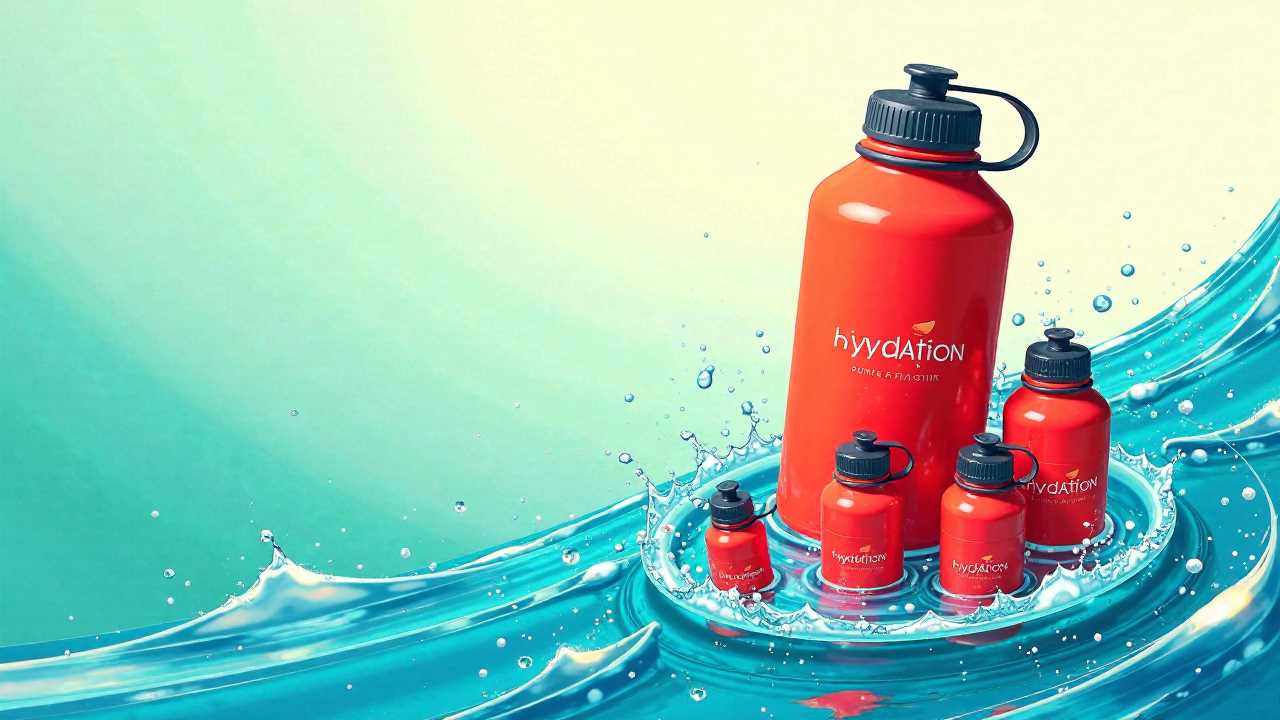
Understanding Hydration Strategies
Hydration is a fundamental aspect of our overall health and wellness. It goes beyond simply drinking water; it involves a comprehensive approach to maintaining fluid balance in the body. Hydration strategies encompass various methods to ensure that we stay adequately hydrated, especially during physical activities. This article will explore effective hydration strategies that focus on replenishment, electrolytes, and recovery, while also emphasizing the importance of nutrition for optimal wellness.
The Importance of Replenishment
After engaging in physical activities, our bodies lose fluids and electrolytes through sweat. This loss can lead to dehydration, which negatively impacts performance, recovery, and overall health. Replenishment is vital to restoring the body's fluid balance. We recommend drinking water or electrolyte-rich beverages immediately after exercise to replace lost fluids.
Incorporating foods with high water content, such as fruits and vegetables, can also aid in replenishment. Foods like watermelon, cucumbers, and oranges not only hydrate but also provide essential vitamins and minerals that support recovery.
Electrolytes: The Unsung Heroes of Hydration
Electrolytes are minerals in our body that carry an electric charge. They play a crucial role in maintaining fluid balance, muscle function, and nerve signaling. Common electrolytes include sodium, potassium, calcium, and magnesium. During intense workouts or prolonged physical activities, we lose these electrolytes through sweat.
To effectively manage hydration, we must consider electrolyte intake. Sports drinks designed for hydration often contain a balanced mix of electrolytes, making them an excellent choice for replenishing lost minerals. Alternatively, we can consume natural sources of electrolytes, such as coconut water, bananas, and leafy greens.
Recovery: The Role of Hydration in Muscle Repair
Recovery is a critical phase following any workout. Proper hydration is essential for muscle repair and recovery. When we exercise, our muscles undergo stress and micro-tears, which need to be repaired for growth and strength. Adequate hydration facilitates nutrient transport to the muscles, helping to speed up the recovery process.
Incorporating protein-rich foods and hydration post-exercise can significantly enhance recovery. Protein shakes, yogurt, or a balanced meal with lean protein sources can provide the necessary nutrients for muscle repair. Coupling these with sufficient hydration ensures that our bodies are well-equipped to recover effectively.
Nutrition: Fueling Hydration Strategies
Nutrition plays an integral role in our hydration strategies. A well-balanced diet rich in fruits, vegetables, whole grains, and lean proteins not only supports hydration but also enhances overall wellness. Foods that are high in water content contribute to our daily fluid intake and provide essential nutrients that aid in hydration.
Moreover, certain foods can help maintain electrolyte balance. For instance, incorporating salty snacks like pretzels or nuts can help replenish sodium levels after sweating. Similarly, potassium-rich foods like sweet potatoes and spinach can support electrolyte balance and hydration.
Practical Tips for Effective Hydration Strategies
To implement effective hydration strategies, consider the following practical tips:
1. Drink Water Regularly: Aim to drink water consistently throughout the day, not just during workouts. Carry a water bottle to remind yourself to hydrate.
2. Monitor Fluid Loss: Pay attention to your body’s signals. If you feel thirsty, it’s a sign that your body needs hydration. Additionally, monitoring urine color can help gauge hydration levels; light yellow indicates proper hydration.
3. Incorporate Electrolyte Sources: Include a variety of electrolyte-rich foods in your diet. Consider consuming sports drinks during intense workouts or after prolonged exercise sessions.
4. Plan Post-Workout Nutrition: After exercising, prioritize a recovery meal or snack that combines protein and carbohydrates, along with adequate hydration.
5. Adjust for Climate and Activity Level: Be mindful of your hydration needs based on environmental conditions and activity intensity. Hot weather or high-intensity workouts may require increased fluid intake.
A Holistic Approach to Hydration and Wellness
Mastering hydration strategies is essential for optimal recovery, replenishment, and overall wellness. By understanding the importance of hydration, electrolytes, and nutrition, we can enhance our physical performance and support our bodies in recovery. Implementing practical hydration strategies into our daily routine will not only improve our fitness levels but also contribute to our long-term health and well-being. Prioritizing hydration is a commitment to a healthier, more active lifestyle.
 Mobility trainingHome Fitness RecoverySports Injury PreventionPersonal Physical TherapyOrthopedic SolutionsPrivacy PolicyTerms And Conditions
Mobility trainingHome Fitness RecoverySports Injury PreventionPersonal Physical TherapyOrthopedic SolutionsPrivacy PolicyTerms And Conditions
